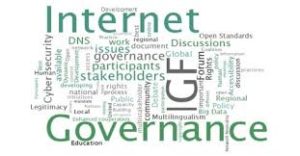Gambia hosts forum on internet governance after 6-year absence
The internet governance forum was organized to represent all key stakeholders in the Gambia through a National Steering Committee coordinated by the Ministry of Information and Communication Infrastructure (MOICI).

Various stakeholders in the advocacy of freedom of expression, safety on internet and digital economy have gathered at the Paradise Suite hotel to discuss country’s policies on the cyber space.
The Internet Governance Forum is an open platform of stakeholders who are interested in influencing public policy regarding the internet.
The IGF looks into issues such as access to internet, infrastructure, privacy and data protection among others.
Biran Gillen, chair of the National Internet Governance Steering Committee, said the conclusions from the forum may inform the government policy on internet governance.
“Let us push for policies that ensure protection of consumers of services… Let us speak out on how things ought to be as far as the ICT landscape in Gambia is concern,” said Gillen.
Gambia is emerging from a dictatorship that restricted public access to information, a draconian policy that affected the social media.
During this period, access to various social media sites and websites that are perceived as opposition or published anti-government news were restricted in the country.
But that restriction was lifted immediately after the election of President Adama Barrow who campaigned on promises of press freedom and transparency.
“The communique from this year’s forum will play a key role in informing future public policies governing internet in this country,” said Awa Njie, permanent secretary at the ministry of communications.
“There are no blockages of social media sites or websites since the coming of the new administration… This shows… that Government gives regards to fundamental rights and freedom…”
Njie said a committee reviewing Gambia’s laws regarding internet and the media were review and submitted to the justice ministry for consideration.
The IGF was initiated in late 2009, after the start of the West African Internet Governance forum.
Since 2010 the Gambia has hosted three National Internet Governance forums, the last being in 2012.
Due to the restrictive nature of the former regime, the National IGF was halted after its 3rd edition. The reasons were lack of open access to internet resources and an enabling environment where freedom of expression was respected.
Internet and digital economy is one of the most crucial factors in the development of nations in 21st century, argues Amadou Nyang from the communication ministry.
Senegal has said 10% of its GDP will come from the digital economy by 2020.
The country’s accountant general, Momodou Lamin Bah, who sat on a panel on cyber security and digital economy at the forum said e-governance has already started in the finance sector.
“Cyber security is becoming an issue and I think this is the time for us to start talking about what will be our cyber security policy…,” added Bah.
The two day forum ends on Thursday, July 5. Gambia will be hosting the West Africa Internet Governance Forum next year.


Comments are closed.